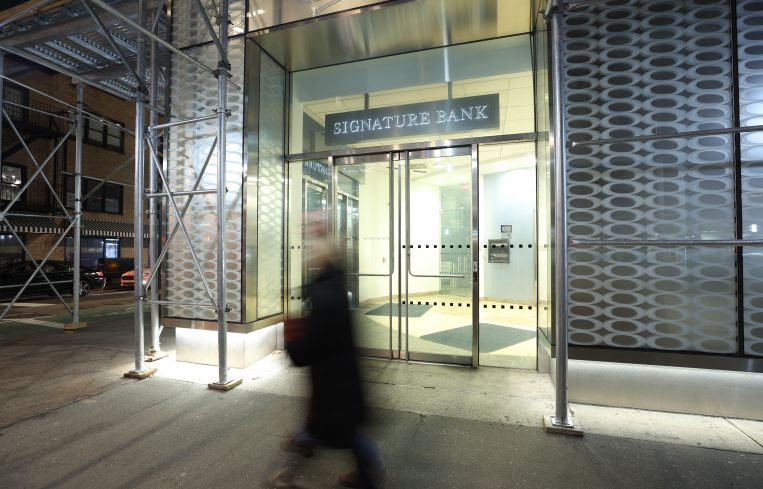Why Signature Bank’s CRE Loan Sale Should Be a Bonanza for Shareholders
I originated the commercial real estate department for Signature and hired all the staff
By George Klett November 7, 2023 10:10 am
reprints
Last March, I wrote an op-ed for Commercial Observer criticizing the FDIC’s takeover of Signature Bank. Here it is eight months later and the FDIC has been trying to come up with a plan to sell the commercial real estate loan portfolio totaling $33 billion.
Initially, they announced that the portfolio would be up for auction in a couple of months. Then it was postponed for a couple of more months. Finally, it is out for auction now.
In May, I sent a proposal to FDIC Chairman Martin Gruenberg, proposing a plan that I could sell the loans in an orderly fashion and obtain the highest price. Since I originated the commercial real estate department for Signature and hired all the staff, it was logical that — because of our knowledge of the loans, the underwriting, policies, procedures, documentation and knowing the borrowers, lawyers and appraisers — we were logically the best group to deliver the most for the portfolio.

My plan was based on a profit-sharing formula that would provide a distribution to my group and the FDIC, which would distribute the proceeds to creditors and SBNY shareholders, over a certain percentage of amount received for the portfolio. Interestingly, the current plan the FDIC is using is based on a joint venture and profit-sharing formula. That is fine by me.
My concern is: Will the proceeds be distributed to creditors and SBNY shareholders? I do not know the amount due to creditors, but I believe it would be relatively nominal. The remaining proceeds would be an extraordinary windfall for the shareholders. As I pointed out in my previous op-ed, I do not believe it was necessary for the FDIC to shut down Signature. Their loan portfolio was of excellent quality. The problem was that, as a result of the crypto collapse, substantial deposits exited the bank and negatively affected the capital ratios.
Signature did not provide loans to the crypto companies; they only took the deposits. When the FDIC announced they were taking over the bank, Signature had already agreed to pledge the loan portfolio and raise sufficient funds to be in compliance with capital ratios. Pledging a loan portfolio is common practice in banking. The Federal Home Loan Bank Board would audit bank portfolios on a regular basis to provide loans backed by the mortgage loan portfolio.
I do not have any detailed knowledge of the exact loan balance, delinquencies or cash flow. However, I have been in real estate for 50 years, primarily in charge of commercial real estate lending departments, and created and managed Signature Bank’s CRE portfolio for over 10 years. I believe that the real value of the portfolio is in excess of 95 percent of the loan balance. However, because a potential buyer would be looking to maximize its profit, the final bid would be less than that.
Using simple arithmetic and conservative assumptions that the loans total $33 billion and a sale only produces 80 percent of that outstanding principal balance, then the result in proceeds is $26.4 billion. If you divide that sum by 62,970,000 shares outstanding, the result is $419 per share. After subtracting legal costs, creditor payments, etc., the amount available for distribution to shareholders would, obviously, still be substantial.
By the way, the monthly cash flow being collected now is well in excess of $100 million. Ironically, despite the fact that, in my opinion, the takeover was wrong, the FDIC’s action, unknown to them, could result in a bonanza to shareholders. It is all dependent on the FDIC doing the right thing and returning the money to the shareholders. As a friend of mine would say “All’s well that ends.”
If the funds are not distributed to shareholders, two questions: Would there be a congressional investigation? Would there be a shareholder class-action lawsuit?
George Klett is the president of New York Real Estate Capital Corporation and was chairman of the commercial real estate committee of Signature Bank.



